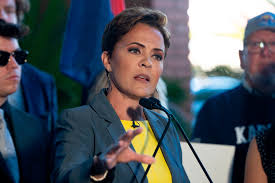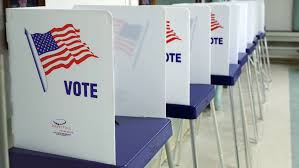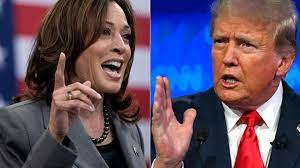Politics
Harris Matches Trump’s Proposal to Ban Taxes on Tips at Las Vegas Rally
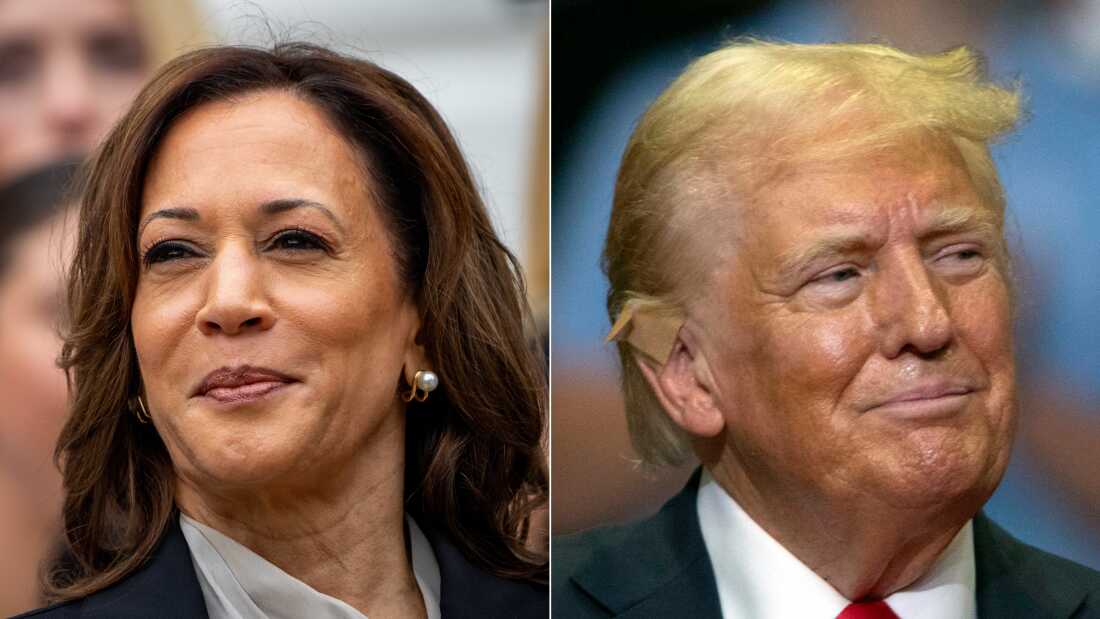
Vice President Kamala Harris announced a plan to eliminate taxes on tips for service and hospitality workers if she wins the presidency, mirroring a proposal put forth by former President Donald Trump earlier this year. Harris made this pledge during a rally in Las Vegas, a critical battleground state where the hospitality sector plays a significant role in the economy.
Speaking to a crowd of over 12,000 supporters on Saturday, Harris emphasized her commitment to supporting working families, stating, “It is my promise to everyone here, when I am president, we will continue our fight for working families of America; including to raise the minimum wage, and eliminate taxes on tips for service and hospitality workers.”
Harris’s proposal came shortly after receiving the endorsement of the Culinary Workers Union, a powerful labor group in Nevada. This endorsement is expected to bolster her campaign’s appeal among the state’s sizable workforce in the hospitality industry, which accounts for roughly a quarter of Nevada’s employment.
Trump, who had introduced the tax-free tip idea during a rally in Las Vegas in June, quickly responded to Harris’s announcement on social media, accusing her of copying his proposal. “She played ‘COPYCAT’ with, NO TAXES ON TIPS!” Trump wrote on Truth Social.
Both candidates’ proposals would require new legislation and congressional approval to become law. Harris’s campaign acknowledged this challenge and indicated that any tax-free tip policy would likely include an income cap and safeguards to prevent higher-income individuals from exploiting the policy.
Critics of the proposal, including some economists, argue that eliminating taxes on tips might not effectively target the intended beneficiaries—low-income workers. They caution that such a policy could result in significant revenue losses for the federal government, with estimates ranging from $150 billion to $250 billion over the next decade. Additionally, some experts believe that a tax-free tip policy may not be the most efficient way to alleviate the tax burden on low-income Americans, as only a small portion of this workforce earns tips, and many already pay little to no income tax.
Despite these concerns, the proposal has gained traction as both Harris and Trump vie for the support of voters in Nevada, a state where the service industry plays a crucial role in the economy.
News
Machado vows to lead Venezuela ‘when right time comes
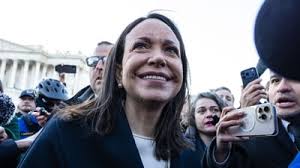
Venezuelan opposition leader María Corina Machado has reaffirmed her intention to lead the country, declaring that she will assume the presidency “when the right time comes,” as Venezuela navigates a critical political transition.
Speaking in an interview with Fox News during a visit to Washington, Machado said she believes she will one day be elected president, describing her ambition as part of a broader mission to rebuild the country. She said her goal is to help turn Venezuela into “that land of grace,” adding that she hopes to become the nation’s first woman president when conditions allow for a democratic transfer of power.
Machado’s remarks came a day after she presented her Nobel Peace Prize medal to US President Donald Trump, describing the gesture as recognition of what she called his commitment to Venezuela’s freedom and democratic future. The symbolic act drew international attention and underscored her effort to strengthen ties with key global actors at a moment of heightened uncertainty for the South American nation.
The political landscape in Venezuela has shifted dramatically following the US operation on 3 January that led to the seizure of President Nicolás Maduro in Caracas and his transfer to New York, where he is facing multiple charges related to drugs and weapons trafficking. The move has intensified diplomatic activity around Venezuela’s future governance and raised questions about who will ultimately lead the country through its next phase.
Despite Machado’s prominence within the opposition and her movement’s claim of victory in the widely disputed 2024 elections, President Trump has so far stopped short of formally endorsing her as Venezuela’s next leader. He has argued that she lacks sufficient domestic backing at this stage. Instead, the US administration has been engaging with interim president Delcy Rodríguez, who previously served as Maduro’s vice-president and is currently overseeing the transitional administration.
Addressing questions about her role, Machado stressed that she remains focused on serving Venezuela in the most effective way possible. “I want to serve my country where I am more useful,” she said, adding that she believes she has a clear mandate from supporters who see her as a central figure in the country’s democratic aspirations.
During her visit to Washington, Machado also met with several US senators as part of broader efforts to rally international support. Outside Congress, her brief comments to reporters were frequently interrupted by supporters chanting “María, presidente” while waving Venezuelan flags, reflecting the enthusiasm of her backers and the continued visibility of her leadership bid.
News
Robert Jenrick sacked by Tories for plotting to defect
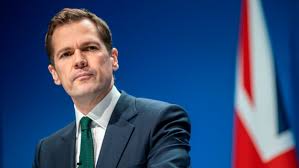
The Conservative Party has dismissed Robert Jenrick from his role as shadow justice secretary after leader Kemi Badenoch said she was presented with what she described as “clear, irrefutable evidence” that he had been secretly plotting to defect in a manner intended to cause maximum damage to the party.
Mr Jenrick’s removal followed the discovery that a resignation speech had been printed and left unattended, an episode that senior party figures said raised serious concerns about his intentions and loyalty. Badenoch acted decisively after being briefed on the circumstances, signalling a firm approach to internal discipline as the party seeks to stabilise and refocus.
As a result of the decision, Jenrick no longer holds any frontbench role, and a successor as shadow justice secretary is yet to be named. While he continues to represent the Newark constituency in Nottinghamshire, he is now sitting as an independent MP. Under parliamentary rules, members are not required to resign their seat if they change party allegiance, allowing constituents to continue to be represented without disruption.
In addition to losing his shadow cabinet position, Jenrick’s personal membership of the Conservative Party has been suspended. This suspension strips him of several party privileges, including the right to attend the annual Conservative Party conference and to vote in future leadership elections.
Party sources said the swift action was intended to draw a clear line under the episode and demonstrate the leadership’s commitment to transparency and cohesion. Supporters of Badenoch argue that the move reinforces a message of accountability and strengthens the party’s ability to move forward with a united front, as attention now turns to rebuilding trust and setting out a clear political direction in the months ahead.
News
Venezuelan Streets on Alert as Opposition Renews Call for Political Prisoners’ Freedom

Security forces have stepped up patrols across major Venezuelan cities amid heightened political tension, as opposition groups intensified demands for the immediate release of political prisoners and renewed calls for democratic freedoms.
The increased security presence followed a wave of protests and demonstrations held overnight in several countries, many of them outside United States embassies. The gatherings reflected sharply divided global reactions to Washington’s recent decision to capture Venezuelan leader Nicolás Maduro. While some demonstrators criticised the move as an overreach, others expressed support for the action, framing it as an opportunity to push for political change and the restoration of freedoms in Venezuela.
Speaking in an overnight interview, former US president Donald Trump was asked who ultimately holds authority over Venezuela. “Me,” he replied, while insisting that the United States is not at war with the Venezuelan state. Instead, he maintained that Washington’s focus is on criminal networks, saying, “We’re at war with people that sell drugs… that empty their prisons into our country.” His remarks underscored the US administration’s position that its actions are aimed at combating transnational crime rather than engaging in a conventional conflict.
However, the situation has also sparked debate within the United States. A senior Democratic figure criticised the US strikes on Venezuela, arguing that they lacked congressional approval. He said he intends to “confront the administration” over any proposal to deploy additional US troops to Venezuelan territory, describing such a move as a “non-starter” and emphasising the need for political oversight and restraint.
In Venezuela, the human impact of the unfolding events has come into sharper focus. Speaking publicly for the first time since his parents were taken into custody, Maduro Guerra warned of the broader implications of the situation. “If we normalise the kidnapping of a head of state, no country is safe,” he said, framing the episode as a dangerous precedent with global consequences.
Amid the uncertainty, the Venezuelan opposition has sought to redirect attention toward longstanding human rights concerns. The movement led by opposition figure María Corina Machado has formally demanded the release of all political prisoners. In a statement posted on X by her Vente Venezuela movement, the group called on authorities to act without delay. “Those who unjustly hold the civilian and military political prisoners should free them immediately,” the statement read.
Machado later reposted the message, amplifying the call and reinforcing her movement’s stance that meaningful stability can only be achieved through justice, due process, and respect for fundamental rights. Supporters say the renewed focus on political prisoners reflects growing optimism that international attention could help create momentum for dialogue, reconciliation, and a more inclusive political future for Venezuela.
-

 News1 week ago
News1 week agoSyria strikes new ceasefire deal with SDF
-

 Sports1 week ago
Sports1 week agoSenegal Claim Dramatic Afcon Glory After Controversial Final Against Morocco
-

 News6 days ago
News6 days agoEurope to suspend approval of US tariffs deal
-
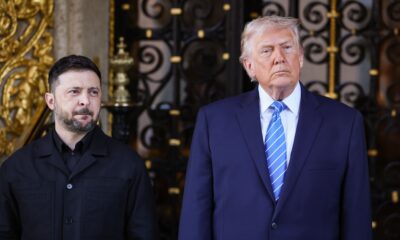
 News4 days ago
News4 days agoZelensky Secures Post-War Security Framework with Trump
-

 Sports4 days ago
Sports4 days agoSancho’s Breakthrough Strike Sends Aston Villa into Europa League Last 16
-

 News4 days ago
News4 days agoRescue Efforts Intensify After Deadly Landslides Strike New Zealand’s North Island
-
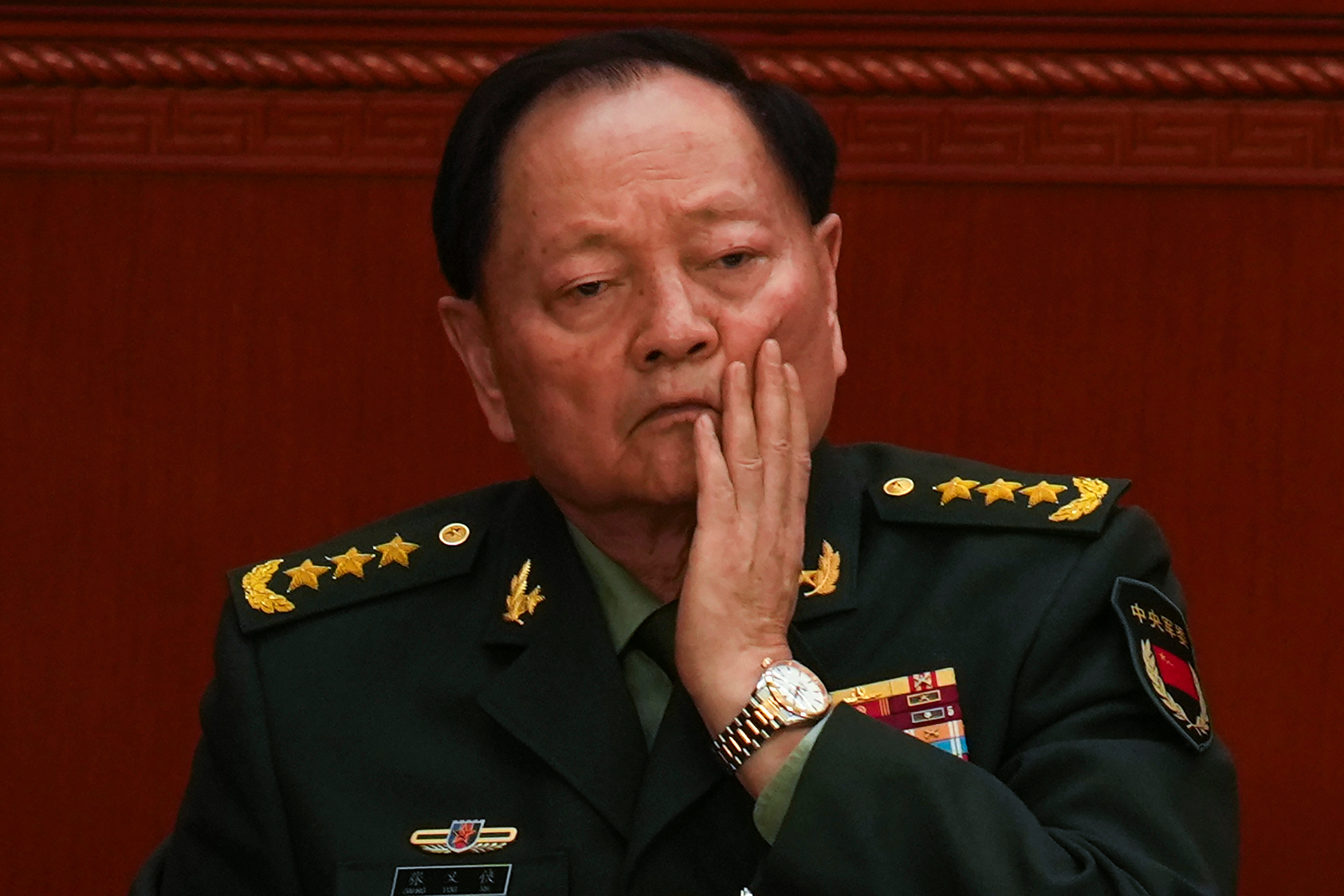
 News2 days ago
News2 days agoChina’s top general under investigation
-

 News19 hours ago
News19 hours agoIsrael to reopen Gaza crossing after search for last dead hostage’s body ends

